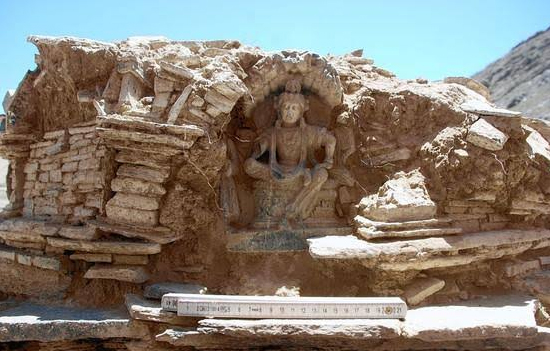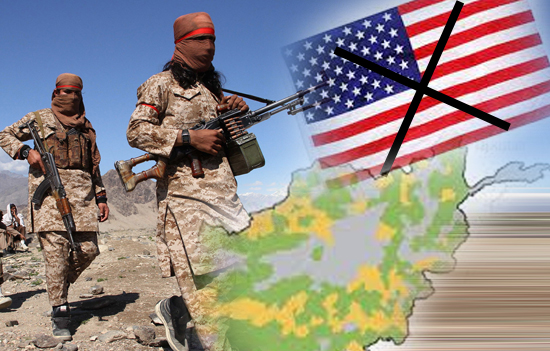- Why did the U.S. enter Afghanistan? What are the
consequences of its withdrawal? History of Afghanistan? Are Afghans paying for
the Karmas of their ancestors?
Have you heard of a country, that spent trillions of
dollars on another and lost over 2,400 soldiers, being criticised for withdrawing
from that country.
The US. went to Afghanistan because as Talat Masood wrote in the Express Tribune Pakistan, “After 9/11 it launched a major offensive named ‘Operation Enduring Freedom’ against the Taliban forces as Mullah Omar refused to hand over Osama Bin Laden to them and by virtue of its military might was able to easily overthrow the Taliban regime.” Ironically years later, the U.S. found Laden not in
Afghanistan but in Pakistan.
Remember, the U.S. did not enter Afghanistan for nation-building. Plus “the U.S. ended its combat operations in 2014 replacing it with a limited “train, advise and assist” mission.”
Without seeking to justify U.S. action
earlier or now one must look at the history of Afghanistan esp. for the last
thousand years to better understand the present. Here it is briefly.
Hindu rulers once reigned over Eastern Afghanistan, including Kabul. “Islam entered Afghanistan in the 7th century. The Zunbil dynasty is believed to be the earliest Hindus who ruled over Kandahar to Ghazni regions of Afghanistan, from 600 to 870 AD. Later the Hindu Shahi dynasty ruled. They were replaced only by the end of the 10th century by Ghaznavids.” Source Indian Express Also, this article
in Speaking Tree states, “In 980 C.E. Afghanistan was also a place where the people were Hindus and Buddhists. The name "Afghanistan" comes from "Upa-Gana-stan" which means in Sanskrit "the place inhabited by allied tribes.” The region was home to many Shiva temples and Buddhist shrines.
 Ruins of Shiva temple in Afghanistan.
Ruins of Shiva temple in Afghanistan.
What happened post 10th century?
“The Ghaznavid Dynasty became the first great Islamic dynasty to rule in Afghanistan. In 1220 all of Central Asia fell to the Mongol forces of Genghis Khan. Afghanistan remained fragmented until the 1380s, when Timur consolidated and expanded the existing Mongol Empire. Timur’s descendants ruled Afghanistan until the early sixteenth century. Next it came under Mughal control. Ahmed Shah Abdali, known as founder of the Afghan nation, built empire in 1760. Thereafter, it became part of the Great Game between Russia and Britain. It achieved Independence in 1919. Amanullah Khan ruled (1919-1929). In 1933 Amanullah’s nephew Mohammad Zahir Shah, the last king of Afghanistan, began a 40-year reign. In 1973 Prime Minister Daoud overthrew the king and established a republic.” 1
In 1979, the Soviets
entered Afghanistan. The U.S., Saudi Arabia and Pakistan propped up Afghan
foot-soldiers to drive out of the Soviets who left in 1989. Next 9/11/
happened. NATO forces found it difficult to defeat the Afghan tribes (like the
Soviets). Note that since the British could not deal with the Afghans they used
Sikh soldiers because it was they who had, in the recent past, defeated the
Afghans.
Thus, Afghanistan’s political transition is work-in-progress for centuries.
 Kalbelia dance by Hungarian Muslim, Jaisalmer Desert Festival.
Kalbelia dance by Hungarian Muslim, Jaisalmer Desert Festival.
The moot point is, has Afghanistan kept pace with
changing times? Did it become prosperous, democratic and empower its women. Religion
not Rule of Law is omnipresent. Is the West or India responsible? The region, including tribes, were always difficult to manage.
That is why the British used Sikh soldiers to fight the Afghans.
So why should the present situation in Afghanistan
surprise you? Let us not get swayed by emotional scenes of Afghans clinging to
aircraft or protesting women, however heart breaking it is. (Muslim countries
is not their destination).
Now, perspectives on commonly asked questions w.r.t.
U.S. withdrawal and consequences.

Has the U.S. achieved its objectives?
It has taken revenge for 9/11/ and killed Osama Bin
Laden (master mind of 9/11/ attacks). Actually having killed him in 2011, the
U.S. should have withdrawn then.
Will the U.S. withdrawal lead to a spurt in terrorism?
The fact that U.S. has not suffered a major terrorist
attack means that those responsible for 9/11/ have got the message. Another
attack and your country would be bombed out of shape. If withdrawal results in
a surge in terrorism in India, she has to fight her own battles.
Will it lead to a spurt of violence in
Pakistan?
So what if it does! How does that affect the U.S.? The U.S. eventually realized that it was fighting a losing battle because “the real problem was that without removing the sanctuaries in Pakistan, the US was caught in a stalemate that made its continued presence unpopular.”
We forget that the birth of Pakistan was forced upon
due to violence unleashed during Direct
Action Day 1946.
Will Taliban fighters head towards
Kashmir?
Note that the India of 2021 is not the India of 2005 or 2010. The nation is confident that the Security Forces are much better prepared. If article 370 had not been abrogated, the present would surely be a cause for concern. Also remember that the FATF (Financial Action Task Force) is yet not off Pakistan’s back.
Further, the Taliban might have realized their objective is to rule Afghanistan and not become Pakistan’s proxy in Kashmir. If they fight in Kashmir they risk losing India’s generosity and will be censured by the international community.
Col Anil Athale (retd) wrote
in Indian Defence Review, “In the 1990s there was no wire fencing on the LOC and no counterinsurgency grid as there is now. In the 1990s and right up to year 2000, the Afghan Mujahideen (predecessors of Taliban) were the blue eyed boys of the US and the CIA and received material and money. Neither of that is true as of now.”
So has the U.S. decided to stop
supporting its Allies like Japan, South Korea, Taiwan and Europe? Can these
countries depend on the U.S?
Remember the U.S. security umbrella with these countries is for different reasons, surely not in response to a terror attack on its soil. In fact, there is a point of view that the U.S. withdrawal from Afghanistan would enable it to focus on the Indo-Pacific. After all, U.S. attack on Iraq and Afghanistan diverted its attention from China, who has become its biggest strategic competitor today. So far the U.S. has not been tested on this count-China might have plans to.
Will the U.S. withdrawal embolden terror
groups?
Only the naive would believe it will. The war between
the West and Islam might enter a conclusive phase if terror groups plan fresh
attacks on the West.
What about military equipment that the
U.S. left behind in Afghanistan?
While they are the best people to answer, it would be interesting
to know how much of the equipment is usable. It is possible that the U.S.
removed key components from equipment. After all, their first objective was
safe exit of their soldiers and citizens.
Not sure if the situation is same today but earlier
all military equipment had to be unloaded at Karachi port and transported to
Afghanistan. The U.S. did not want Pakistan to be involved in its exit (being
aware of its duplicity) hence it chose to leave the equipment behind. As of now
it seems that the U.S. would no longer be dependent on Pakistan, as it were
when NATO soldiers were fighting in Afghanistan.
Should Pakistan be happy?
The Pakis always wanted to control the regime in
Afghanistan in order to achieve strategic depth vs India. They have got it.
Having said that, the Taliban is made up mostly of Pakhtuns who constitute about 45% of Afghanistan’s population. If they decide to join hands with their brothers in Pakistan and change the Durand Line it might spell trouble for Pakistan.
Pakistan should remember that what you throw at others
might come to haunt you later. Ask the U.S.?
Also, the Taliban are not a monolith. Raghvendra Singh
wrote in India’s Lost Frontier, “Pakhtun tribal organization was never made for unity. The Amir of Afghanistan could never expect complete submission from such independent-minded tribesmen. pg. 32&37
Russia is concerned about the security of its borders
with its Central Asian neighbours.
China would be happy with a Taliban regime provided it
supports the BRI program (note recent attacks on Chinese national in Pakistan) and
does not export terrorism to Xinjiang.
The U.S. must give up its dream of exporting western
style democracy to countries that are happy with the way they are. Instead it
should focus on re-building its infrastructure and the Indo-Pacific.
Are Afghans of today paying for the karmas of their ancestors is something
worth pondering over?
India has to fight its own battles and keep the heat
on Pakistan. It should resist from accepting too many Afghan refugees (would be
interesting to know the male:female:child ratio of Afghans who got Indian
visas) due to social tensions this may cause. It is Wait and Watch for India in
Afghanistan.
References
1. History
of Afghanistan
2. Keep
distance from the Taliban
Also read
1. Sacking
the Sub-continent Ahmed Shah Abdali
2. Impact
of withdrawal on the region
3. Another
U.S. failure that has little but blood in the sand to show
4. U.S.
exit spells fear and uncertainty for the Afghans
5. Post
withdrawal concerns for Middle East countries
6. Sanction Pakistan
7. Wait and Watch
in Afghanistan